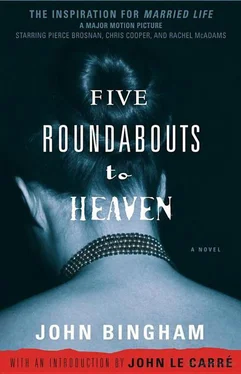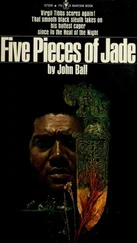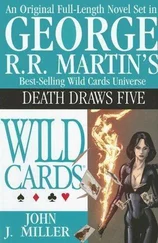John Bingham - Five Roundabouts to Heaven
Здесь есть возможность читать онлайн «John Bingham - Five Roundabouts to Heaven» весь текст электронной книги совершенно бесплатно (целиком полную версию без сокращений). В некоторых случаях можно слушать аудио, скачать через торрент в формате fb2 и присутствует краткое содержание. Жанр: Криминальный детектив, на английском языке. Описание произведения, (предисловие) а так же отзывы посетителей доступны на портале библиотеки ЛибКат.
- Название:Five Roundabouts to Heaven
- Автор:
- Жанр:
- Год:неизвестен
- ISBN:нет данных
- Рейтинг книги:4 / 5. Голосов: 1
-
Избранное:Добавить в избранное
- Отзывы:
-
Ваша оценка:
- 80
- 1
- 2
- 3
- 4
- 5
Five Roundabouts to Heaven: краткое содержание, описание и аннотация
Предлагаем к чтению аннотацию, описание, краткое содержание или предисловие (зависит от того, что написал сам автор книги «Five Roundabouts to Heaven»). Если вы не нашли необходимую информацию о книге — напишите в комментариях, мы постараемся отыскать её.
Five Roundabouts to Heaven — читать онлайн бесплатно полную книгу (весь текст) целиком
Ниже представлен текст книги, разбитый по страницам. Система сохранения места последней прочитанной страницы, позволяет с удобством читать онлайн бесплатно книгу «Five Roundabouts to Heaven», без необходимости каждый раз заново искать на чём Вы остановились. Поставьте закладку, и сможете в любой момент перейти на страницу, на которой закончили чтение.
Интервал:
Закладка:
He did not lust after her, either; his feelings were too gentle, too tender, and above all too protective; and the rest of the Seven Deadly Sins did not seem to come into the picture.
What, then, had been the driving force?
He wondered if the secret lay in some sort of secondary products of the Seven Deadly Sins, and toyed with the thought in a morbid desire to lay bare the basic defect in his character.
He tried to persuade himself that in wishing to shelter Lorna from the difficulties of the world, he was in reality wishing to see himself as the knight errant, the recipient of her gratitude and praise; a desire which was possibly a watery by-product of pride and lust. By the bonds of marriage, he belonged to Beatrice, yet he wished to belong to Lorna: was this, in some twisted, inverted form, a manifestation of covetousness? He shook his head. It was all far-fetched and unconvincing.
Far ahead, he could see the lights of the fifth roundabout, and glanced at the clock and saw that he was now making good time.
He reverted to the consideration of lust, because it was something to do, something to keep his mind off what he might find when he got home.
Expressed in its simplest form the position was that he, Bartels, wanted a certain woman. To get her, he was prepared to kill. That was it, there you had it: you had to put from your mind the excuses, the consoling thoughts of doing things for Lorna’s good. You were not conscious of lust, of any overwhelming carnal desires, but the mere fact that you were prepared to kill to get her indicated that they were there in your subconscious.
But what of the much-extolled virtues of pity and mercy? If it were not for pity and mercy, he thought bitterly, I could have walked out on Beatrice like millions of other husbands have done in the past, and will do in the future.
The scandal would be short-lived, and you don’t go to prison for it. They don’t hang you for it. But they hang you if you kill your wife just because you have so much pity in you that you cannot leave her in loneliness.
If things went wrong, he would be ranked with Crippen. He would be portrayed as a callous monster in the eyes of posterity. But who knows what went on in the mind of the little man called Crippen? Who knows? thought Bartels again.
He was drawing near to the fifth roundabout when he thought of how he would feel if he were put in prison, perhaps not even hanged, just put in prison, for years, behind locked doors.
Shut in, in a tiny cell, for hours on end each day and night. So that the walls pressed in on you, and the ceiling pressed down upon you, nearer and nearer, and closer and closer, and you could bang on the door and break the skin on your hands, and scream yourself hoarse, and it did not avail. And when the lights went out, there was the darkness, thick and cloying, and that suffocated you; and what with the darkness and the walls, you knew you were not really in a prison at all.
You were buried alive.
You were in your coffin, deep under the earth, slowly suffocating to death, in the darkness and the loneliness and the silence of the earth. Nobody would release you because nobody could hear you, and everybody thought you were dead, and nobody knew the doctor had made a mistake, and you had merely been in a cataleptic trance; feeling yourself being put in a shroud, and hearing the coffin lid come down, and feeling the swaying motion of the coffin-bearers, and the sound of the earth falling remorse-lessly above your head; falling, and falling, and falling, more and ever more of it, till the sounds grew fainter and only the silence remained.
He was shivering again now, fighting against the old, the dark shocking terrors, his hands wet upon the wheel.
He was near to the roundabout, when the black cat, emblem of good luck, but young and inexperienced, ran swiftly across the road before his car. Its ears were laid back, its tail arched like a squirrel’s.
For a second he had glimpsed the young cat’s eyes, green fire in the light of his headlamps, and then it was in front of him.
Bartels didn’t run it over.
He might have done so, had he had time to think it all out, but he acted instinctively, as he was bound to do, in the only way in which he, Philip Bartels, could have been expected to act.
Bartels braked.
If there had not been any snow, it might have been all right. If the coach, approaching from the right, with its lighted interior, had been a few minutes earlier, or later, it might not have been so bad, either.
As the car swung in a circle, darted sideways, hit the TURN LEFT sign, he heard the screaming of the coach brakes, and saw it swerve ineffectually, and crash with its fender into his own car, and felt the stab of pain in his side. It was only then that he felt afraid.
Even then it was only for a second.
He saw it looming over him, and heard the crash, and felt the pain, and hazily noted the strange stillness which followed for a brief moment the noise of the impact.
Before he lost consciousness he heard himself murmur: “Beatrice,” and was faintly surprised.
Extract from a police report prepared by Inspector Macdonald, of the Metropolitan Police Force, and shown to me, Peter Harding, in confidence, at a later date:
On 26 February, at about 10.40 p.m., as a result of a telephone message to the effect that Beatrice Bartels, a married woman, of 34 Alvington Court, W8, was in danger of unknowingly taking a draught of medicine containing some poisonous substance, namely altrapeine, or that she may already have taken such medicine, I proceeded to the address in question, accompanied by Sergeant Wellings of this station, where I observed through a glass panel in the front door that a light appeared to be burning in the flat.
I rang the bell and knocked, but received no answer.
In view of the nature of the message which had been received, I instructed Sergeant Wellings to force an entry. This was effected by breaking a portion of the glass panel, and releasing the latch from inside.
An inspection of the flat showed that it was empty.
At 10.55 p.m. a woman who subsequently proved to be Mrs Bartels entered the flat, stating that she had been to the cinema and had left the light burning to discourage burglars.
I said to her: “A man called Philip Bartels, who states that he is your husband, has been involved in a motor-car accident and is lying seriously injured in Richmond Hospital. This man has caused a message to be sent to the police to the effect that a poisonous substance, namely altrapeine, has been introduced into some medicine which he anticipated you would take before retiring to bed this evening.”
Mrs Bartels replied: “There must be some mistake. I do not understand.”
I then said to her: “Did you, in fact, intend to take some medicine before retiring this evening?”
She replied: “Yes.”
I asked her where this medicine was to be found, and she replied: “It is beside my bed.”
I went with her into a bedroom, and on a table by the side of the bed I saw a bottle containing a small amount of white powder. I informed Mrs Bartels that it would be necessary for me to remove the bottle and contents for examination, and she replied: “Is that really necessary?”
I informed her again that it was necessary, and she made no reply. I then asked Mrs Bartels if she wanted to visit her husband in hospital, in view of his condition, and she replied: “Later, perhaps. Not just now.” She was in a distressed state.
I left Sergeant Wellings with Mrs Bartels, and returned to this station, where, in view of the verbal statement already made by the husband, Philip Bartels, I made arrangements for police officers to attend Richmond Hospital with a view to taking any further statement from Bartels which he might care to make, and should he be in a position to make one.
Читать дальшеИнтервал:
Закладка:
Похожие книги на «Five Roundabouts to Heaven»
Представляем Вашему вниманию похожие книги на «Five Roundabouts to Heaven» списком для выбора. Мы отобрали схожую по названию и смыслу литературу в надежде предоставить читателям больше вариантов отыскать новые, интересные, ещё непрочитанные произведения.
Обсуждение, отзывы о книге «Five Roundabouts to Heaven» и просто собственные мнения читателей. Оставьте ваши комментарии, напишите, что Вы думаете о произведении, его смысле или главных героях. Укажите что конкретно понравилось, а что нет, и почему Вы так считаете.












